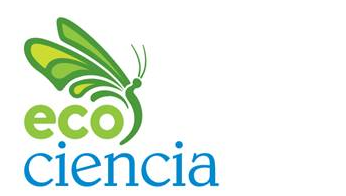SERVIR-Amazonia is pleased to welcome the EcoCiencia Foundation as a new main partner of the initiative in Ecuador and celebrates the expansion of its Consortium, made up of the lead organization, Alliance of Bioversity International and CIAT (Colombia), Spatial Informatics Group-SIG (United States), Amazon Conservation-ACCA (Peru), and the Institute of Forest and Agricultural Management and Certification-IMAFLORA (Brazil).
EcoCiencia is a private Ecuadorean non-profit scientific entity, legally established in 1989. EcoCiencia was founded with the aim of generating quality information for making better decisions in favor of the conservation of biodiversity and the well-being of the population. This challenge has demanded the inclusion of wider, more comprehensive, and more complex approaches. Because of that, EcoCiencia now has an interdisciplinary staff, with ecologists, geographers, economists, anthropologists, administrators, sociologists, and planners, who work together to develop new methodologies, create tools, and systematize experiences in the fields of biodiversity conservation and sustainable development. EcoCiencia supports, shares, and works through partnerships with local sectional governments, municipalities, provincial councils, local NGOs, and community-based organizations, in search of solutions to the socio-environmental problems of Ecuador.
The EcoCiencia team will facilitate interaction with Ecuadorean organizations and entities for co-development and use of the geospatial services that Servir-Amazonia will develop in Ecuador. They will also help incorporate the voices of women and indigenous people in the services, as well as contribute to the development of their capacity to manage and use geospatial tools.
Carmen Josse, Executive Director of EcoCiencia, celebrates the mutual benefits that the partnership with SERVIR-Amazonia brings. Carmen considers that collaboration with SERVIR-Amazonia is a win for both parties and stresses the clear understanding that the organization has of the problems that exist in the Amazon region. EcoCiencia has been working for many years with decentralized autonomous governments, developing scientific information based on geospatial analysis and promoting the use of this information for making decisions. “We are going to have an incredible learning experience because of all the expertise that the Servir-Amazonia brings to the region. Our objective is to generate a greater impact by supporting the delivery of services based on the demand of the public entities and of the civil society, just as SERVIR-Amazonia has been doing.”
Carmen Josse, Executive Director of EcoCiencia talks about mutual benefits of this alliance (Video in Spanish only)
Rodrigo Torres is the Coordinator of the Geography Unit of EcoCiencia. He has great expectations for establishing contacts and helping to develop services with NASA and institutions of the region. “We have been working in Ecuador for more than 30 years, focusing on science for development of the country. We have vast experience in the areas of deforestation, mapping of soil use, in working with indigenous communities, and in working for the empowerment of women. In EcoCiencia, we apply our knowledge and contacts to extending the initiative and generating services.” The inclusion of EcoCiencia in Servir-Amazonia was made possible thanks to financing from the United States Agency for International Development (USAID), which, along with the National Aeronautics and Space Administration (NASA), lead the SERVIR-Global initiative.
Rodrigo Torres, Coordinator of the Geography Unit of EcoCiencia talks about his expectations of this alliance (video in Spanish only)
Carlos Gasco, Program Director, welcomes EcoCiencia on behalf of SERVIR-Amazonia: “EcoCiencia is a natural member of the initiative and will enable us to effectively expand operations in Ecuador. We have known EcoCiencia for many years and its work in favor of the Amazon region, and thus we feel very well represented in Ecuador.” We thank USAID and NASA for the confidence they have placed in our institutions by allowing us to incorporate EcoCiencia within the initative.”



